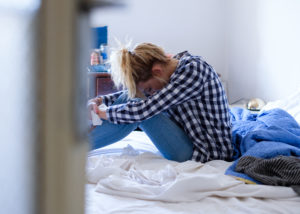Millennials in Changing Roles
When you hear the word “millennial,” the image that comes to mind might not be entirely positive. The media often portrays millennials, people born between 1980 and 2000, as being spoiled, lazy, and overly dependent on their parents. However, a new growing statistic might change that image; more and more millennials are taking on the role of an unpaid caregiver for sick and elderly family members. According to the AARP Public Policy Institute, the rate of millennial caregivers is about 1 in 4.
Understanding the Demographic Shift
In the past, most people did not find themselves in caregiving roles until they were in their 40’s or 50’s; however, that’s because prior to the baby boomer generation, people had children at younger ages and lived shorter lives. Many baby boomers, who make up 25% of the population, had children much later in life than their parents, and many of those children are millennials. Baby boomers are now reaching retirement and experiencing higher rates of chronic illnesses. Because many boomers are divorced, they’re relying on their children or grandchildren for care.
The Challenges
Many millennials who are now in their late 20’s and early 30’s are struggling to pay off student debt and are spending their limited funds on caregiving costs. At work, they may often be late or absent, leading to disciplinary action and missing out on opportunities for advancement.
Also, the stress faced by millennial caregivers can cause problems with their own health. While they want to make sure their elderly loved one is comfortable and feel positively about being able to help, they lose the opportunities to socialize and have fun. This adds to emotional and mental strain.
Most do not have any kind of formal caregiving training or skills, such as how to recognize a stroke, which is problematic for the people in their care. Without skilled care, sick and elderly people can suffer from worsening health. There is also frequent guilt about burdening their millennial caregiver.
Conclusion
The number of millennial caregivers will continue to increase as more and more baby boomers become elderly and experience fragile health. One solution available that can make life easier and more enjoyable for both the senior and the family member is in-home care. For example, Home Instead Senior Care provides clients with companionship, personal care, transportation, and help with household duties. If you’re currently struggling with your responsibilities as a caregiver, let Home Instead Senior Care help today.


